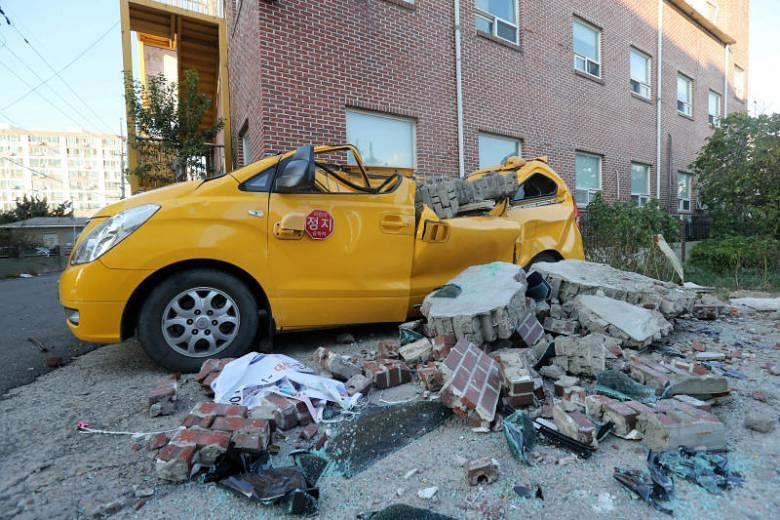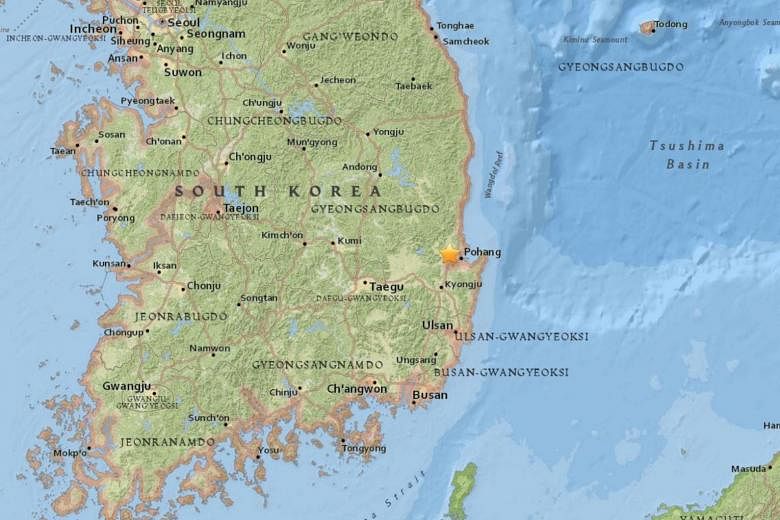SEOUL (REUTERS, AFP) - South Korea postponed its annual university entrance exam by a week on Wednesday (Nov 15) after a rare earthquake of 5.4 magnitude rattled the country, shaking buildings and causing damage, but fortunately no deaths.
Minister of Education Kim Sang Kon said the hugely competitive exam, scheduled for Thursday, would be postponed for the first time ever because of a natural disaster.
It was the country's second-biggest earthquake on record.
"A fair amount of damage was reported," Kim told a media briefing. "Due to the continued aftershocks, we are seeing many citizens, including students unable to return home."
The exam would now be held on Nov 23 to ensure conditions were fair for everyone, he said.
The quake, felt across much of the country including in the capital Seoul, struck at the shallow depth of 9km near the industrial city of Pohang at around 2.30pm (1.30pm Singapore time), the Korea Meteorological Administration said.
There were numerous reports of minor damage, but operations at nuclear reactors were not affected, the state-run nuclear operator Korea Hydro & Nuclear Power Co said.
The university entrance exam is taken very seriously. Commercial airliners refrain from flying during listening portions of the exam, while financial markets open later in the day to ensure light traffic for students to get to their exam centres.
South Korea has relatively little seismic activity, compared with Japan to the east. Its strongest quake on record was magnitude 5.8 in September last year. The Meteorological Administration said nearly 20 aftershocks had shaken the region and more were expected in coming days.
While the Korean peninsula rarely has to worry about significant quakes, seismic activity is closely monitored because a spike in activity is often the first indication that North Korea has carried out a nuclear test.
The port city of Pohang is home to the headquarters of Posco - the country's top, and the world's fourth largest, steelmaker. No immediate damage was reported in the firm's steel mills.
Photos and video footage sent to local TV stations showed crumbled street walls, furniture violently shaking inside people's homes and people rushing out of buildings in panic.
Shattered storefronts and goods tumbling off store shelves were seen in images posted on social media, as well as cars smashed by fallen bricks and cracks in the ground.
Emergency centres nationwide were flooded with thousands of calls seeking information, while Kakao Talk - the South's top mobile messenger application - reported service disruption due to heavy traffic.
South Korean President Moon Jae In, on his way to Seoul after attending the Asean summit in Manila, is set to hold an emergency meeting upon arrival, his office said.


